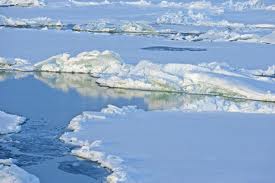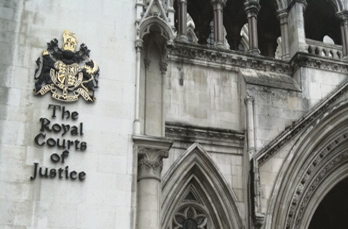[captionpix align=”right” theme=”elegant” width=”350″ imgsrc=”http://www.mapsofworld.com/europe/country-groupings/northern-europe-map.gif” captiontext= “The UK would align with Norway, Denmark, Sweden, Finland, Estonia, Lithuania, and Latvia”]
An interesting proposition for the emergence of a distinctly northern European security arrangement has been circulating the airwaves: a UK-led initiative that would see London align security and defence policies in the Arctic in tandem with Sweden, Norway, Denmark, Finland, Estonia, Lithuania and Latvia. The goal is to establish a framework that addresses ‘common interests’ between the mentioned nations. This article is going to look at the possible architecture of such a structure, what its goals might be and the reasons the UK has for beginning this partnership.
There are several strategic dimensions to this theoretical alliance in northern Europe. The first is that it would be an extension of British influence in the Arctic, since the UK has no sovereign land holdings above the Arctic Circle. Second, finding regional commonalities with other interested parties gives British interests not only more weight, but also the most legitimacy. The UK is qualitatively different from the other members of this proposed alliance. As a nuclear power, London is on a separate level of political, diplomatic and military influence compared to the Scandinavian and Nordic countries. The European Union would also be implicated here, because the UK remains a part of Brussels’ overarching foreign policy framework through the European External Action Service. Effectively, this initiative would be another expression of multilevel governance in Europe, as this grouping will not be insular from the EU, NATO or other conditions that already exist on the northern part of the continent (e.g. UNCLOS and the Arctic Council).
The inherent question in the creation of this bloc is the definition of ‘common interests’ and the strictness of the arrangement itself. Contextually, the potential members of this alliance are also a part of the Arctic Council, NATO, or both and there is a the possibility of a conflict of interest, especially if the new organization’s mandates include overlapping responsibilities related to security or socio-economic development. London’s interests in the Arctic can only be realized via multilateralism and that requires finding commonalities with other countries. A regional northern European framework would legitimately extend those interests, while being a stabilizing factor in Arctic politics.
The strategic intent is to limit Russia’s military influence in the High North. Its enclave around Kaliningrad at the heart of the Baltic states is of particular concern, as the potential range of weapons that can be deployed in the region can be a direct security threat to Europe (e.g. Project 955 SSBNs, Voronezh radars and S-300/400 air defence systems). A formal commitment to Arctic peace and security that included the Baltics would give purpose to the organization and become the foundation for the idea of having common interests.
As this structure would be closely related to NATO via its largely overlapping membership and security focus, a possible change in the Alliance’s strategy to make the Arctic a priority will largely impact this proposed entente. Changes in NATO’s mandate with respect to the Arctic may extend beyond military security and involve economic infrastructure, security, commercial shipping and also political outreach. The global interest in the region would warrant such a shift within NATO and solidarity and consensus would make the Arctic a priority for all 28 members, even if only five are littoral states. In this way, the proposed security alliance in northern Europe would complement NATO, even if the overall strategic imperative is to check Russian influence in the Arctic.
On the matter of how disciplined such an arrangement would be, it may have a largely non-institutionalized structure, not unlike that of the G8/G20 summits. Its fundamental nature would involve the extension of British strategic influence in northern Europe using multilateral legitimization as a tool. However, considering that the potential mandate of this organization overlaps with the Arctic organizations, the UN, European Union and NATO, it will not be a strong intergovernmental arrangement. The loose definition of its terms does not suggest a permanent organization, but rather a regional initiative with annual meetings, rotating chairmanship and perhaps issue-based working groups.
While NATO maintains partnership contracts with non-member states through arrangements like the Euro-Atlantic Partnership Council and the NATO-Russia Council (NRC), it is still a regional political and military alliance. The recent visit by Secretary General Anders Fogh Rasmussen to Japan and the conclusion of a political declaration of common interests solidifies the two-decade relationship. However, it also highlighted NATO’s impermanent role in Asia. While global links like these exist, they are not binding, and this reality means NATO is not yet a global organization. The Arctic is an intersection for significant players with global perspectives and capabilities which could bring NATO much closer to being a global alliance. For example, were China to acquire hyper-sonic weapons, targeting them at Europe over the Arctic rather than through western Asia, and that development would necessitate a NATO-China Council, not unlike the NRC in format. Then might we begin to call NATO a global organization.
For the UK, operating in the complex multidimensional context of the Arctic is not possible without active membership in international institutions. The puzzle for London is precisely to express its Arctic interests via international institutions in a way that makes them recognized in the Arctic in the eyes of international partners. Taking leadership in this respect is politically smart, and helps shore up London’s competence as a constructive member of the international Arctic community.
Through this century, global attention to the Arctic is only going to intensify; prudent and informed decision-making to balance big interests with sensitive geography is the only way to a stable Arctic future.




